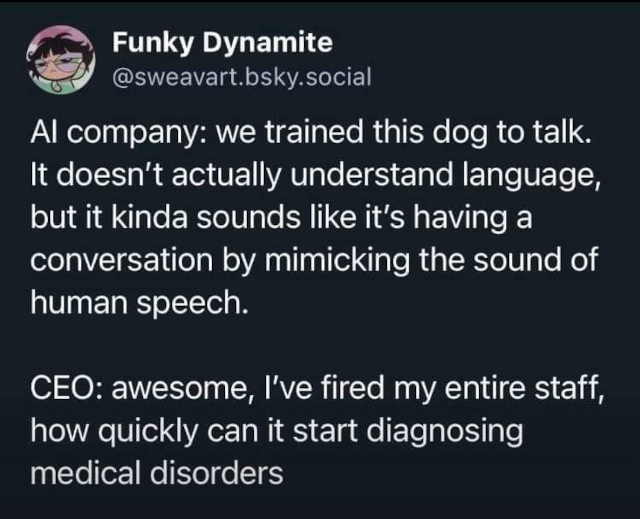
My very first job after residency was as a university professor and I was assigned to be medical director of a community program. During my first-ever medical directors’ meeting, the department chair made his opening remarks and asked the assembled medical directors “is there anything we can do that would help you out?”
Spontaneously and in unison, the gathered medical directors shouted “DISCHARGE SUMMARIES!!”
That was a quarter of a century ago.
In most hospitals these days (since the 1990’s) patients are treated by “hospitalists”: doctors employed by the hospitals to take care of inpatients. (Previously, most patients were admitted to community hospitals by their primary care physician, who would care for them while they were inpatients.) I would come to find that patients, when hospitalized, usually entered a kind of black hole. They would emerge from the hospital with, at best, a list of the medications they were given at discharge. No diagnosis or test results or treatment rationale. Though the Centers for Medicaid and Medicare Services (CMS) requires that a discharge summary be done within 24 hours of discharge, this was so seldom the case that it actually became a cause for celebration when a patient had a decent discharge summary available during their hospital follow-up appointment.
Once, as a family medicine resident rotating through an OB/Gyn service, I was asked to discharge a patient who had been in the hospital for months and had many volumes of charts. Some idiot on the OB/Gyn service had actually written “hold discharge until FP intern is available.” Yes, they deliberately delayed discharging this patient so that they could dump the chore of writing her summary on someone who had not been involved in her care at all. And they were stupid enough to document that they were compromising patient care because they were all too lazy to do their jobs. At least that patient had a summary when she left, even if it wasn’t as good as if it had been written by someone actually on her care team.
Most patients weren’t that lucky. Most outpatient programs where I worked, I started telling the staff that they couldn’t schedule hospital follow-up appointments until we had a discharge summary. The hospitals were furious at this requirement that they comply with regulation. The most common response was that a discharge planner would just grab a handful of random pages from the chart and fax them to us, calling it a summary. I tightened the requirements to say that I needed a document with the title “Discharge Summary” and a physician’s signature on it. I then received a fax with a sheet of paper, “Discharge Summary” printed on the top, and a doctor’s signature at the bottom. It was otherwise blank. In another case, the large staff-model HMO hospital just faxed over 220 pages of charting from their electronic record, almost all of which was administrative nonsense but it said “electronically signed by Joe Schmo, MD” at the end. Complaints to CMS went unaddressed, but I was told that I had “painted a target on my back” by pissing off some of big boys in corporate healthcare.
Yes, patients died. No, as far as I know, regulators did nothing.
Now, my fear is that (if it hasn’t happened already), someone is going to add a large language model (LLM) summarizer to their hospital electronic record system. They’ll call it “AI” though there will be nothing intelligent about it. It will likely generate plausible-sounding bullshit that will be devoid of the nuance that would help the outpatient doctors care for the discharged patient. Doctors will just sign them because otherwise they’d have to actually do their job, which (at least in this neck of the woods) most aren’t willing to do. Patient care will suffer. More patients will die. And hospitals will be able to claim they’re “in compliance” with patient-safety regulations that they otherwise would simply ignore.
—2p